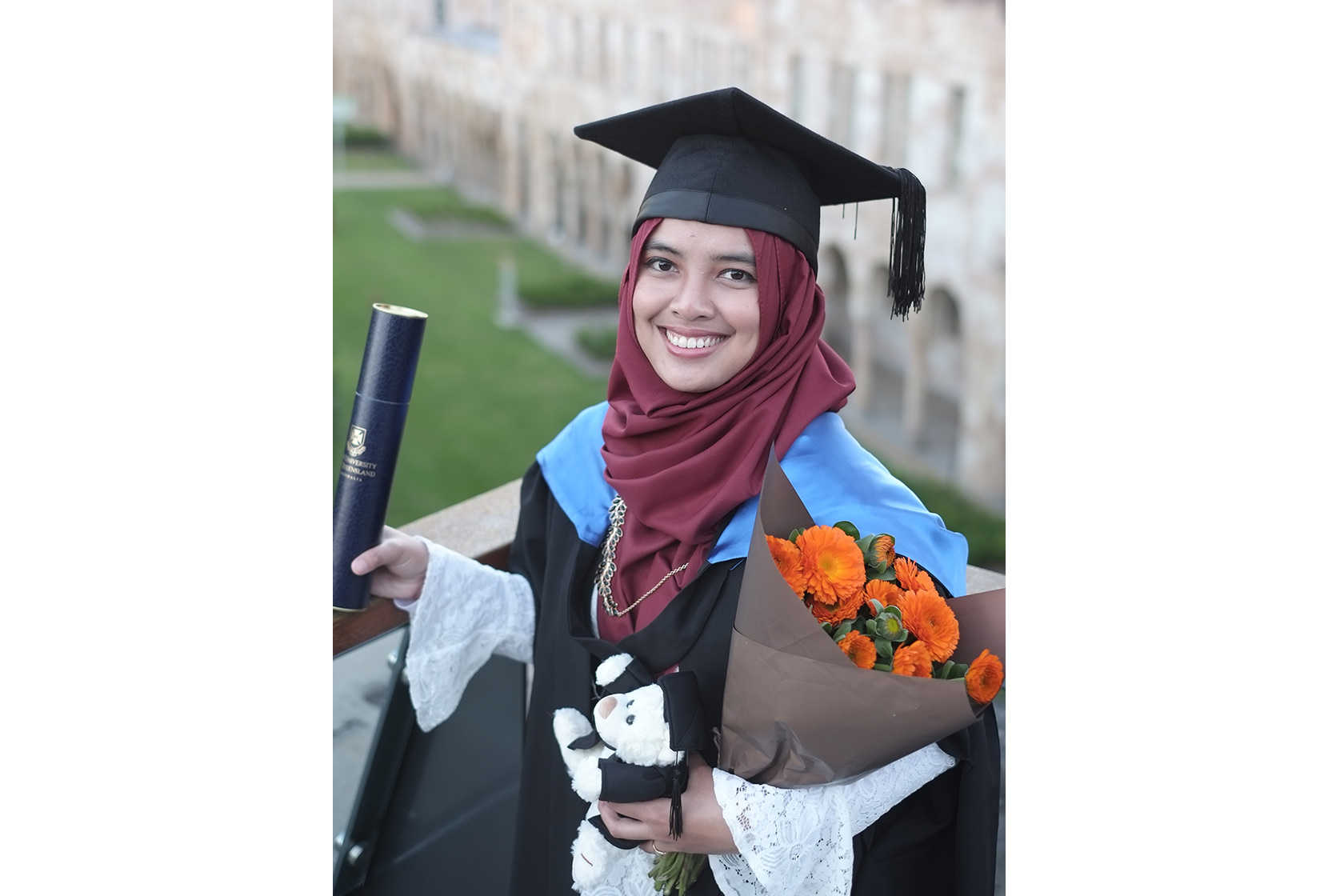Language teacher and co-founder of Rumah Mocaf Indonesia, Wakhyu Budi Utami, knows that learning is a lifelong process that takes place in the classroom and in our everyday lives.
Known as Tami, she has been teaching English part-time since she was an undergraduate student at Semarang State University (UNNES). She continued teaching English after earning her bachelor's degree in English/Language Arts Teacher Education. Later, when she studied for a masters degree in Brisbane, Australia, she taught Indonesian lessons.
Along with her dedication to teaching, Tami has been a devoted volunteer. This path led her to a project with farmers in her hometown who needed innovation.
Before studying in Australia, she arranged a program curriculum for volunteers at Sekolah Inspirasi Pedalaman (SIP) Banjarnegara, Central Java.
SIP Banjarnegara was originally established as a response to the high number of students who didn’t graduate.
However, after engaging with the locals and village government, the organisation was asked to help not only the children but also the adults in Banjarnegara, most of whom work as farmers.
In 2014-2015, the cassava farmers in Banjarnegara suffered because of their crop's plummeting price, where one kilogram of cassava was only worth IDR 200.
Tami and her husband were driven to help and began developing concepts.
They founded Rumah Mocaf Indonesia, a producer of gluten-free flour from cassava, collaborating with more than 452 farmers in Banjarnegara, which now has increased the value of their crop to IDR 1,500 per kilogram after the cassava processed into modified cassava flour (Mocaf).
Learn Anything, Anywhere
In 2016, the Indonesia Endowment Fund for Education (LPDP) granted Tami a scholarship. She furthered her master's study at The University of Queensland, taking the Master of Applied Linguistics program.
Tami recalled how one of her highlights in Australia was studying food safety, even though, at that time, her masters program had no relation to the food industry.
It happened when Tami was fundraising as a University of Queensland Indonesian Student Association (UQISA) member.
Before selling food with UQISA, Tami received basic training from the campus concerning food safety, basic hygiene, and cross-contamination.
Even though she was living a thousand miles away from Banjarnegara, Tami was still thinking about improving the well-being of the farmers in her hometown.
During her year in Brisbane, Tami was constantly exposed to Australian food culture. She often attended potluck parties where she noticed there was always a label on the food to tell people if it was 'gluten-free' or 'dairy-free'.
Those little things made Tami realise how health-conscious people in Australia are genuinely concerned about what goes into their food.
This realisation flicked a switch in Tami's mind. She started to calculate the massive market opportunity for cassava products, which are healthy and rich in fibre, to penetrate the global market.
Becoming a ‘Socio-preneur’
Bringing abundant knowledge from Australia, in 2017, Tami and her husband began to take Rumah Mocaf Indonesia more seriously.
Tami dived head first into socio-preneurship. The experience she gained in Australia helped her when it came to managing the licensing of the organisation.
But Tami realised that her understanding of entrepreneurship and the food industry was still shallow. She looked for ways to upgrade her arsenal.
Being familiar with Australia already, Tami followed the Australia Awards in Indonesia (AAI) social media. She found a program suitable for her field of work called International Business Readiness – a Course for Women-led MSMEs in the Food Sector held by Griffith University.
"I felt that upgrading my knowledge was crucial. That’s why I decided to apply for the AAI short course program," she said.
During the online short course, Tami learned about business development and women’s empowerment, leading to some significant breakthroughs at Rumah Mocaf Indonesia.
Tami admitted that she had sometimes doubted or underestimated her abilities. Through the short course, she gained more confidence to become a woman entrepreneur.
Tami now gives equal opportunity to men and women who apply for the organisation’s marketing position. Previously, Tami had worried that women were less capable.
Another improvement Tami initiated after the short course was establishing a division focused on penetrating the global market.
Rumah Mocaf Indonesia's products have reached Turkey, Oman, and the United Kingdom. After the short course, Tami sent her product samples to three potential buyers in Sydney, and she is currently arranging the license required to export her products to Australia.
Impact Over Profit
Having been able to study at Australian universities twice, Tami has been eager to give back to the community.
With her husband, Tami founded a foundation named Yayasan Pemuda Indonesia Berdaulat (Sovereign Indonesian Youth Foundation, or YPIB), which aims to help other small and medium-sized enterprises (SMEs), empower youth, and act as a learning centre.
Following the short course, Tami with YPIB held training for 50 SMEs in Banjarnegara. She worried that many SMEs in Banjarnegara didn't have adequate information regarding the Indonesian government program that benefitted them.
Tami's lectures varied from food safety, licensing, and export preparation. She also shared her knowledge from the short course on marketing and content creation to help small businesses promote their products.
Tami clarified that she and her husband do not intend to turn Rumah Mocaf Indonesia into a profit-oriented company.
"It's not always about profit. It's how we can positively impact our partners and customers," she said.
Through collaboration, the couple aims to grow Rumah Mocaf Indonesia with their business partners – the community’s farmers, youth, and women.


 Wakhyu Budi Utami Goes from Teacher to Learner to Empower Farmers Through Rumah Mocaf Indonesia
Wakhyu Budi Utami Goes from Teacher to Learner to Empower Farmers Through Rumah Mocaf Indonesia
